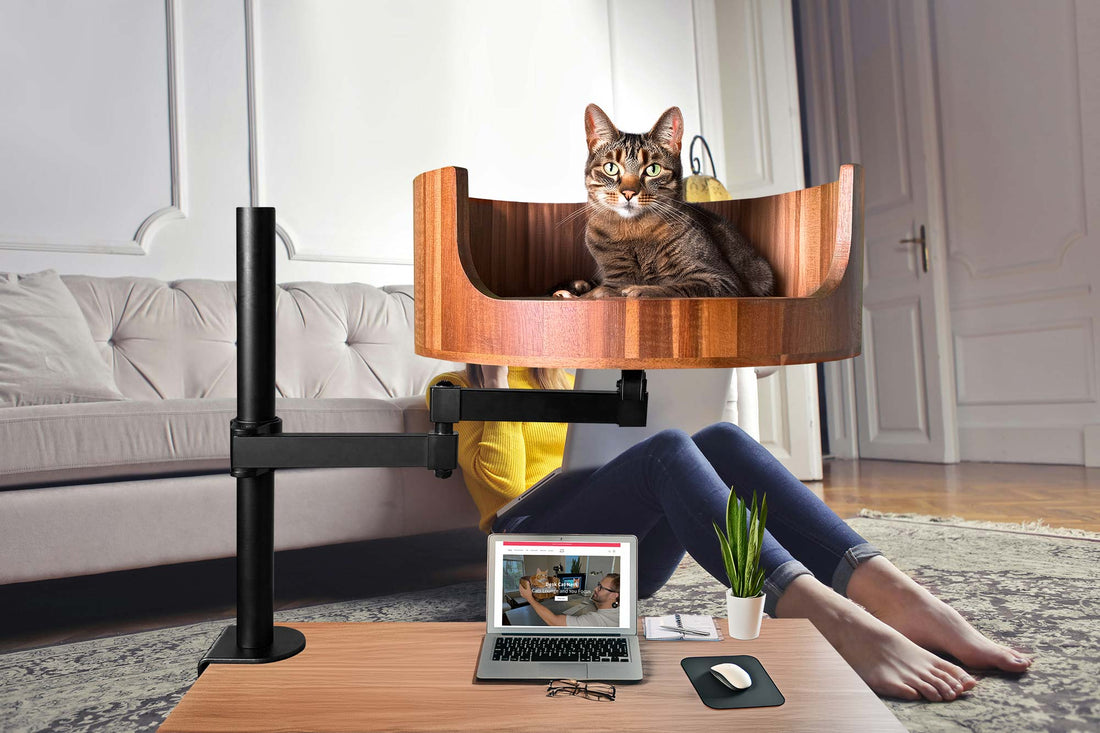
My Cat Yells All the Time: Understanding Feline Behavior
Share
Do you have a cat that seems to never stop yelling? If so, you're not alone. Many cat owners experience this common behavior that can be both baffling and frustrating. In this article, we will delve into the reasons behind why your cat may be constantly meowing or yelling and offer insights into understanding feline behavior.
From attention-seeking to medical issues, there are a variety of reasons why your cat may be vocalizing more than usual. By examining the potential causes of your cat's relentless meowing, you can better address their needs and create a harmonious living environment for both you and your feline friend. Additionally, we will explore tips and strategies for managing excessive meowing and ensuring your cat's overall well-being. So, if you find yourself at your wit's end with a perpetually meowing cat, read on to gain a deeper understanding of your furry companion's behavior and how to address it effectively.
1. Cats may yell excessively due to underlying medical issues, so it's important to rule out any health concerns with a vet.
2. Yowling could be a sign of anxiety or boredom, so providing mental and physical stimulation is crucial for a happy cat.
3. Cats might be seeking attention through meowing, so giving them positive reinforcement for calm behavior can help.
4. Understanding your cat's vocal cues and body language can help decipher what they are trying to communicate.
5. Creating a comfortable and stimulating environment for your cat can help reduce excessive yelling and improve their overall well-being.
Causes of Excessive Vocalization in Cats
There are several reasons why a cat may excessively meow or yell. It could be due to underlying health issues such as hyperthyroidism, dental pain, or arthritis. Stress and anxiety can also manifest in excessive vocalization. Cats may meow more if they are bored, lonely, or seeking attention. Additionally, aging cats may develop cognitive dysfunction, leading to confusion and increased vocalization.
Understanding Feline Communication
Cats communicate through various vocalizations, each with its own meaning. A short meow may indicate a greeting or request for attention, while a long, persistent meow could signal distress or discomfort. Understanding the context in which your cat is meowing can help decipher their messages. Body language, such as tail position and ear movement, can also provide clues to a cat's emotional state.
Tips for Managing Excessive Vocalization
To address excessive vocalization in cats, it is essential to first rule out any underlying medical issues. Provide mental and physical stimulation through interactive toys, play sessions, and environmental enrichment. Regular feeding schedules and creating a safe and comforting environment can help reduce stress and anxiety in your cat. Responding positively to desired behaviors and ignoring excessive meowing can also help modify your cat's vocalization habits.
Case Study: Strategies for Reducing Excessive Meowing
One cat owner noticed that their senior feline was meowing excessively, especially at night. After consulting with a veterinarian to rule out medical issues, the owner implemented a structured feeding schedule, introduced interactive toys, and created a cozy nesting spot for the cat. By providing mental stimulation and addressing the cat's needs, the excessive meowing gradually decreased, resulting in a happier and more contented pet.
Frequently Asked Questions
What is causing my cat to yell all the time?
Excessive vocalization in cats can be caused by a variety of reasons, including stress, medical issues, boredom, or even just a naturally chatty personality. It's important to consult with a veterinarian to rule out any underlying health problems before trying to address the behavior.
How can the Desk Cat Nest help with my cat's excessive yelling?
The Desk Cat Nest provides a cozy and secure space for your cat to rest and relax, which can help reduce stress and anxiety. By giving your cat a designated area to retreat to, they may feel more comfortable and less inclined to vocalize excessively.
Will the Desk Cat Nest stop my cat from yelling altogether?
While the Desk Cat Nest can help create a calming environment for your cat, it may not completely eliminate excessive vocalization. It's important to address any underlying issues contributing to the behavior and to provide your cat with mental and physical stimulation to keep them engaged and content.
How should I introduce my cat to the Desk Cat Nest?
It's important to introduce the Desk Cat Nest gradually to allow your cat to become familiar with it at their own pace. Place treats or toys inside the nest to encourage them to explore and associate it with positive experiences. Patience and positive reinforcement are key when introducing your cat to new furniture or accessories.
Is the Desk Cat Nest easy to clean and maintain?
Yes, the Desk Cat Nest is designed for easy cleaning and maintenance. The removable cushion can be washed as needed, and the durable materials are designed to withstand regular use. Simply follow the care instructions provided with your Desk Cat Nest to keep it looking and smelling fresh.
In conclusion, the Desk Cat Bed is a valuable choice for cat owners whose furry companions tend to yell all the time. By providing a cozy and comfortable space for your cat to relax and nap, the Desk Cat Bed can help reduce stress and anxiety, ultimately leading to less vocalization. Additionally, the elevated design of the bed allows your cat to have a better view of its surroundings, which can also help curb excessive meowing. Overall, investing in a Desk Cat Bed is a great way to keep your feline friend happy and content, while also creating a peaceful and quiet environment for both you and your cat.



















































